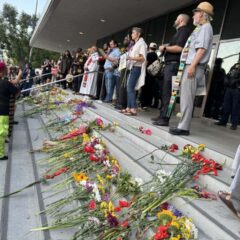CRCC’s senior research director Richard Flory was quoted by Buzzfeed about religious revival in Silicon Valley.
An excerpt from the article:
C3SV’s [an independent offshoot of a Pentecostal megachurch] parent, C3 Global, has plans as ambitious as any startup’s. Right now, it claims to have 400 churches in 64 countries; by 2020, it plans to have 1,000 outposts with 500 members apiece. Smallcombe said the church is “aggressive” with sending out church plants, which “doesn’t necessarily come with church funding — you have to raise that yourself, missionary-style.”
Richard Flory calls this kind of expansion the “franchise model.” Flory, a senior research director at the University of Southern California’s Center for Religion and Civic Culture, visited Pentecostal megachurches for an upcoming book about changes in the religious landscape. Planting a new offshoot usually begins with “a soft launch in somebody’s apartment,” he said. In C3SV’s case it was at the Smallcombes’ rental home in San Jose. (“We rent as a church and we rent as a couple and a family as well,” Smallcombe told me.)
Even when there is no direct financial connection, churches benefit from support networks. “They will go to each other’s conferences and they will essentially bring their own followers,” said Flory. Franchisees can also capitalize on the name brand and global reach through music, which allows them to grow very quickly, he said.
In less than four years, C3SV has drawn in more than 3,000 visitors, mostly from congregants inviting their friends, co-workers, and family members. The church has about 1,500 active members, and across all four Easter services, Smallcombe said about 1,300 people showed up. Stripping religion off the veneer of the church makes it easier to introduce it to others. Smallcombe said he wanted to create a church where members “weren’t ashamed or afraid to invite people.”…
Click here to read the full article.
Photo Courtesy C3 Silicon Valley / Via Facebook: C3SiliconValley




